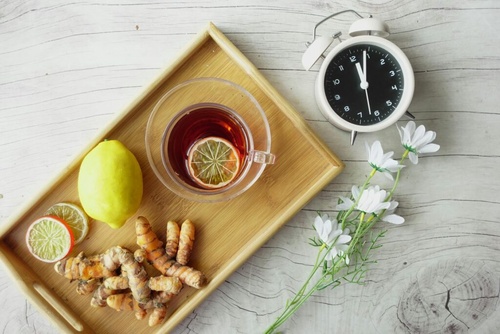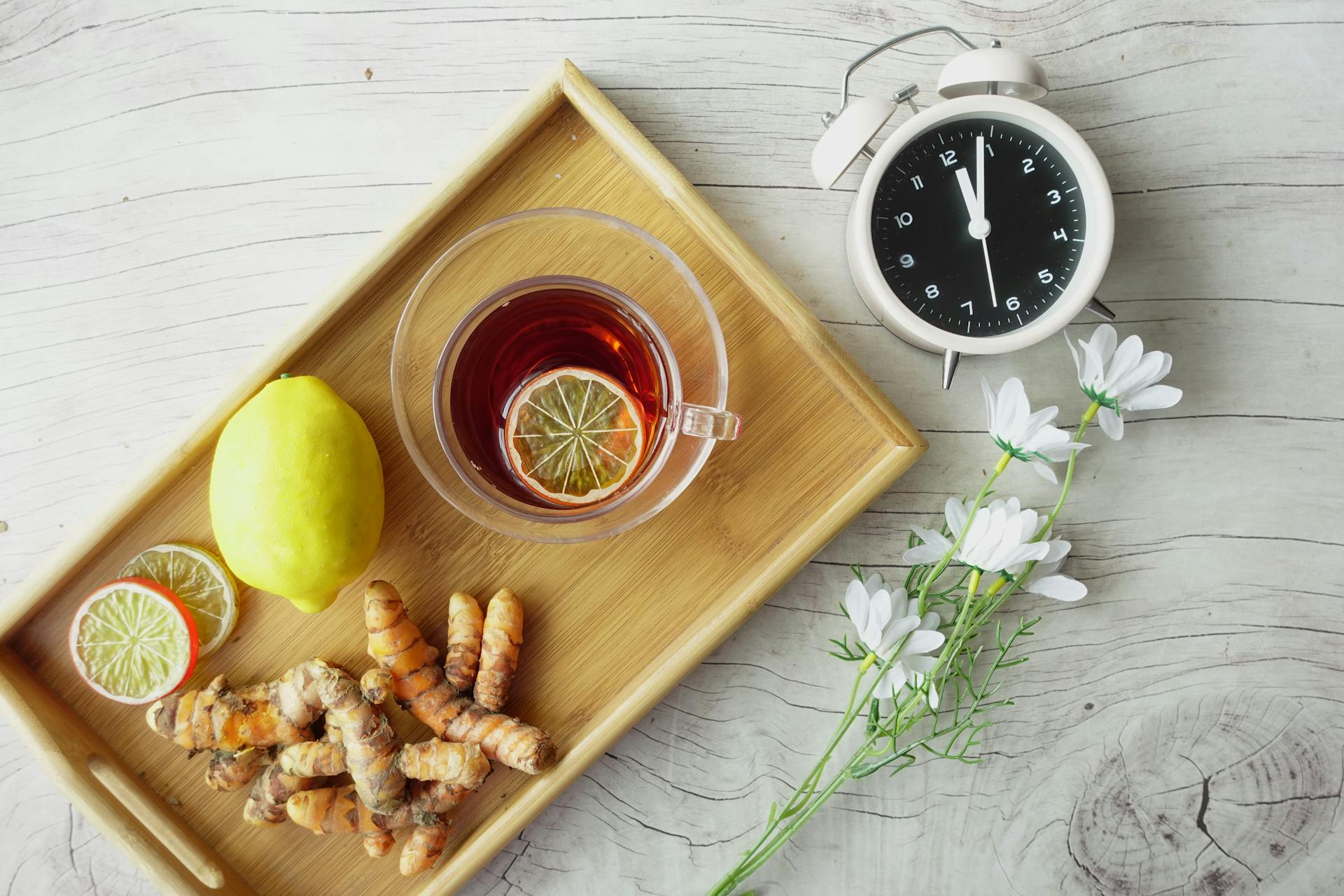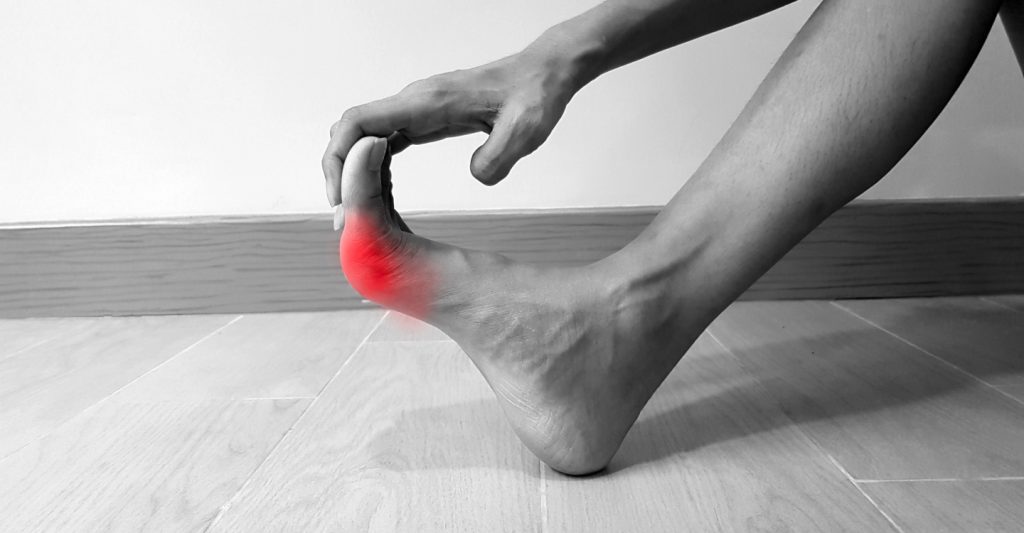Have you ever ordered sushi and received it with a side of green wasabi and what appears to be little peach-colored folds next to it? Well, if you have ever wondered what that stuff is, it’s ginger—and it can help reduce the appearance of spider veins by improving blood circulation. Most of the time ginger is used as an herb for flavoring foods but sometimes it’s used as an alternative medical treatment. Try adding a little ginger to your diet in combination with your varicose veins or spider vein treatments to help reduce their appearance.
You may ask yourself what good blood circulation has to do with spider veins. Spider veins are caused by weakened valves inside veins that allow blood to flow in the opposite direction than it is supposed to. This venous reflux – or backward flow – allows blood to pool within the veins and the increased pressure causes the appearance of spider veins and varicose veins. This leads researchers to believe if you can improve blood circulation, you might be able to reduce the appearance of spider veins.
Good blood circulation is essential to sustain our bodies’ general health and well-being. It is necessary for proper functioning to transmit critical nutrients and oxygen to tissues and organs while also removing harmful metabolic waste products from the body. However, a sedentary lifestyle combined with poor diet and aging can contribute to reduced circulation, leading – among other things – to visceral problems like leg fatigue or cold feet and even more severe conditions such as venous insufficiency.

Understanding Vein Health
Arteries deliver oxygen-rich blood to various organs from the heart, and veins pick up depleted blood for reoxygenation before returning it to our ‘pump chamber.’
Veins play several vital roles in the circulatory system:
- Transport of Un-oxygenated Blood: Veins provide a route whereby un-oxygenated blood can be returned from the body’s organs and tissues to the heart. From there, it is pumped again for reoxygenation in the lungs and circulates throughout one’s entire systemic circulation.
- Valve Function: Arteries do not need to rely on their power supply. Thanks to the action of the heart, arteries move blood forward. Veins, conversely, contain tiny (one-way) valves along their length, preventing any part from returning to where it started. This way, they ensure an adequate flow towards one directional destination.
- Blood Reservoir: Veins also serve as a blood bank, helping to regulate how much blood is in the system and keeping its pressure more or less constant throughout our bodies.
Common Issues Affecting Vein Health
Despite their critical role in the structure of the vascular system, veins can be prone to various health problems that will affect performance and even destroy their function. Some of these problems are:
- Poor Blood Circulation: The muscular action of the calf pump increases blood flow back to the heart. If this natural force is impaired, such as through prolonged sitting or standing still for an extended period, veins may be affected. Obesity and a sedentary lifestyle have also been known to contribute significantly; legs will throb with pain and cramp as chronic venous stasis ensues.
- Varicose Veins: Varicose veins are enlarged, twisted veins that usually develop in the legs but can appear anywhere. They frequently result from weak vein walls and bad valves, causing dilated and twisted blemishes on your legs, making standing or walking hard. These veins give rise to several swelling- or aching-type discomforts, which affect not just the pleasure you take from physical exercise but also how others view you aesthetically.
Emphasizing Proactive Measures for Vein Health:
Good vein health has always been closely related to overall wellness and quality of life. However, though various risk factors that cause problems with veins- such as genetics, age, or sex–are not within the control of an individual, positive strategies exist that anyone can use to maintain or improve their veins. These include:
Routine Exercise: Regular physical exercise helps blood circulation and strengthens the muscles that support vein function, such as those in your legs.
Balanced Diet: A balanced diet containing plenty of fiber, antioxidants, and nutrients is good for heart and vascular health. It can also help prevent conditions that harm vein health, such as obesity or high blood pressure.
Elevating Legs: Raising the legs higher than the heart level when resting helps reduce swelling and relieve pressure on veins, promoting improved blood circulation.
Compression Therapy: Using support stockings or clothing to squeeze the veins in your legs gently encourages blood flow and keeps them from remaining still.
By following these principles regularly in daily life, individuals can take a proactive approach to maintaining maximum health for their veins and overall circulation, among other health benefits.
Benefit of Ginger Improving Circulation
Is ginger good for circulation? Ginger has the ability to possibly lower your blood pressure. When the amount of pressure on your veins is minimized it allows for easier blood flow.
Ginger, known for its culinary and medicinal uses, has drawn attention in recent years due to its ability to enhance blood circulation and support general vascular health. With a rich history of traditional use and a burgeoning scientific interest, ginger offers a natural and holistic means of promoting circulatory function.
Ginger is a flowering plant native to Southeast Asia in the family Zingiberaceae. The rhizome, known as ginger root, is used in many forms—fresh, dried, ground, or eaten as an extract–and for culinary and medicinal purposes.
Scientific Evidence of Ginger’s Role in Enhancing Blood Circulation
Many studies have been conducted on ginger to investigate its circulatory benefits. These investigations produced some favorable results. Progress in nutritional science indicates that when a subject is given ginger supplementation, peripheral circulation improves, and more blood circulates throughout the body. This effect is significant because it benefits those with cold hands and feet due to poor circulation.
Blood in the capillaries can also flow more freely upon ginger treatment. Consumption of ginger helps deliver nutrients and oxygen efficiently to tissues, promoting general tissue health and function.
Ginger enhances circulation. Good blood flow and microcirculation in blood vessels allow cells to be nourished well. As such, ginger helps promote balanced overall cardiovascular health. Ginger also reduces inflammation; its anti-inflammatory characteristics help alleviate inflammation in the blood vessels and thus lower the risks of vascular disorders while easing blood flow.
Ginger may reduce oxidative stress. Its antioxidant elements help eliminate the body’s harmful substances, known as free radicals, to provide protection against oxidation and maintain vascular integrity.
Addressing Common Questions and Misconceptions
Despite its potential benefits, some common questions and misunderstandings about ginger as a circulation aid exist. While ginger may benefit many people by promoting it for blood circulation, its efficacy depends on factors such as dosage, individual health status and body state. It is necessary to ask a doctor before using ginger as a circulatory aid, especially if you have existing health problems or are taking other drugs.
Can ginger replace traditional therapies? While ginger for blood circulation offers natural support, it is not meant to replace traditional therapy for severe circulatory diseases. It can complement conventional treatments, but it does not depend on itself if an ailment needs medical attention. Ask your doctor, too.
Does it have side effects or interfere with other drugs? Like any other herbal medicine, ginger can cause side effects or work against particular medications. Common problems are digestive upset, heartburn, or an allergic reaction. People who are taking blood thinners or diabetes medication should approach ginger cautiously because it may interfere with them.
With its anti-inflammatory properties, antioxidant and blood vessel-expanding effects, ginger is a traditional Chinese medicine with potential benefits for promoting blood circulation. Though actual research studies support the above assumption, it is crucial to remember that one should take ginger cautiously. Consistent use of ginger with a balanced lifestyle may encourage good vascular health.
How to Use Ginger for Good Circulation
Integrating ginger into your diet is an easy, fun way to enjoy the benefits of circulation. Fresh or dried ginger, preserved or used to make an extract for drinking, can be introduced into many dishes and drinks to promote better blood flow.
Here’s how to use ginger for circulation:
- Add Fresh Ginger to Meals: Grate or finely chop and add fresh ginger to stir-fries, soups, stews, marinades, or salad dressings for a flavorful kick and a natural circulation shot.
- Brew Ginger Tea: Boil fresh slices of ginger or some grated in hot water, and you can make fresh ginger tea. If you wish, improve the taste with some lemon juice or honey.
- Blend into Smoothies: Add fresh or ground ginger to your favorite smoothies for that little extra boost of blood distribution. Combine it with fruits like pineapple, mango, or berries for a juicy and healthful drink.
- Use in Baking: Sprinkle ground ginger on baked goods such as cookies, cakes, and muffins to give them a spicy feel. It also works well with other aromatic spices, like cinnamon and nutmeg.
- Make Ginger-infused Beverages: Play with ginger-infused drinks such as ginger lemonade, ginger ale, ginger ale, or ginger kombucha. They are great for light, hydrating pleasures in summer with increased circulatory benefits.
Conclusion
In conclusion, ginger for blood circulation represents a natural ally that is versatile and used to help improve vein health and blood circulation. With potent anti-inflammatory, antioxidant, and vasodilatory properties, ginger provides a comprehensive means for maintaining blood vessel tone and well-being. Add some ginger to eat or to take as a supplement in your everyday life and feel the effects on your circulation.
Ginger holds immense promise and many potential benefits, but responsibly using it is critical. Individuals with underlying illnesses and people taking drugs should seek care from professional medical personnel to get a base of personalized advice.
If you are looking for natural ways to boost circulation, you can consider ginger for blood circulation. With its medicinal properties recognized for centuries in traditional medicine, ginger for circulation provides an underestimated means of improving circulation and general vein health. Many beneficial compounds are known to inhibit inflammation there, while ginger has been shown time and again to impact blood flow positively.
In addition, proactive efforts to maintain wonderful blood circulation are just as vital. Regular exercise, a balanced diet, and sufficient fluid intake are imperative to maintaining healthy blood circulation. Avoiding long periods of inactivity becomes a crucial rule for guaranteeing good cardiovascular health and overall well-being.
Visit Foot, Ankle & Leg Vein Center
If you are experiencing issues with varicose or spider veins, you might need to consult a vein specialist or vascular surgeon.
The Foot, Ankle & Leg Vein Center is your local podiatrist in Boca Raton and Boynton Beach, FL. We diagnose and treat all kinds of foot, ankle, and leg vein care.
Dr. Jodi R. Schoenhaus, DPM, RPhs, FACFAS, is a trusted podiatrist in Boca Raton, FL. She is Board-Certified by the American Board of Foot and Ankle Surgery and the American College of Foot and Ankle Surgeons and specializes in foot, ankle, and leg vein procedures, including spider and varicose veins. Schedule your appointment today at (561)-750-3033.
Improving Blood Circulation in Your Veins With Ginger FAQs
What Causes Spider Veins?
Spider veins are caused by weakened valves inside veins that allow blood to flow in the opposite direction than it is supposed to. This venous reflux – or backward flow – allows blood to pool within the veins, and the increased pressure causes spider and varicose veins to appear.
Does Ginger Improve Blood Circulation?
Yes. Ginger can help improve blood circulation in a couple of ways. Ginger has the ability to lower your blood pressure. Ginger also exhibits blood-thinning potential, and because thinner blood is easier for your heart to pump, it can help improve blood circulation within your veins.
Can Ginger Break up the Protein Fibrin in the Veins?
Veins sometimes appear more prominent because of the buildup of blood protein fibrin. The buildup of fibrin causes veins to bulge, making spider veins more visible. Studies have shown that ginger is one of the natural substances that can break up the protein fibrin in your veins, helping to reduce their visibility.
References
Anh NH, Kim SJ, Long NP, Min JE, Yoon YC, Lee EG, Kim M, Kim TJ, Yang YY, Son EY, Yoon SJ, Diem NC, Kim HM, Kwon SW. Ginger on Human Health: A Comprehensive Systematic Review of 109 Randomized Controlled Trials. Nutrients. 2020 Jan 6;12(1):157. doi: 10.3390/nu12010157. PMID: 31935866; PMCID: PMC7019938.
Bode AM, Dong Z. The Amazing and Mighty Ginger. In: Benzie IFF, Wachtel-Galor S, editors. Herbal Medicine: Biomolecular and Clinical Aspects. 2nd edition. Boca Raton (FL): CRC Press/Taylor & Francis; 2011. Chapter 7. Available from: https://www.ncbi.nlm.nih.gov/books/NBK92775/
Drugs and Lactation Database (LactMed®) [Internet]. Bethesda (MD): National Institute of Child Health and Human Development; 2006–. Ginger. 2023 Nov 15. PMID: 30000845.
Wu, H., Horng, C., Tsai, S., Lee, Y., Hsu, S., Tsai, Y. … Yang, J. (2018). Relaxant and vasoprotective effects of ginger extracts on porcine coronary arteries. International Journal of Molecular Medicine, 41, 2420-2428. https://doi.org/10.3892/ijmm.2018.3380



